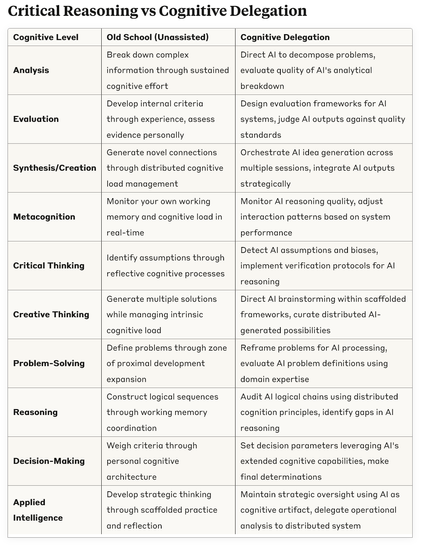The educator panic over AI is real, and rational.
I've been there myself. The difference is I moved past denial to a more pragmatic question: since AI regulation seems unlikely (with both camps refusing to engage), how do we actually work with these systems?
The "AI will kill critical thinking" crowd has a point, but they're missing context.
Critical reasoning wasn't exactly thriving before AI arrived: just look around. The real question isn't whether AI threatens thinking skills, but whether we can leverage it the same way we leverage other cognitive tools.
We don't hunt our own food or walk everywhere anymore.
We use supermarkets and cars. Most of us Google instead of visiting libraries. Each tool trade-off changed how we think and what skills matter. AI is the next step in this progression, if we're smart about it.
The key is learning to think with AI rather than being replaced by it.
That means understanding both its capabilities and our irreplaceable human advantages.
1/3
#AI #Education #FutureOfEducation #AIinEducation #LLM #ChatGPT #Claude #EdAI #CriticalThinking #CognitiveScience #Metacognition #HigherOrderThinking #Reasoning #Vygotsky #Hutchins #Sweller #LearningScience #EducationalPsychology #SocialLearning #TechforGood #EticalAI #AILiteracy #PromptEngineering #AISkills #DigitalLiteracy #FutureSkills #LRM #AIResearch #AILimitations #SystemsThinking #AIEvaluation #MentalModels #LifelongLearning #AIEthics #HumanCenteredAI #DigitalTransformation #AIRegulation #ResponsibleAI #Philosophy
